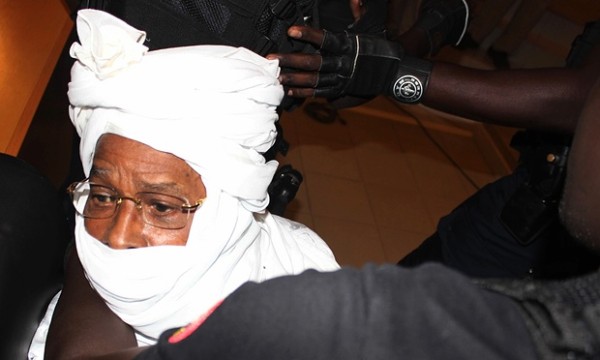PBS: Escaping Eritrea … [Read More...] about ካብ ውሽጢ ቤት ማእሰርታት ኤርትራ
The Guardian view on Hissène Habré’s trial: a major step forward for justice in Africa
Tuesday 21 July 2015, The Guardian (UK)
There were scuffles in the courtroom as the trial of one of Africa’s most ruthless dictators got under way this week, in Dakar, Senegal – before being adjourned until September. The emotions were hardly unexpected. The man in the dock was a leader who has inflicted an array of repressive measures on his people during his decade-long rule. Those who had suffered could finally, after many years of legal effort, confront their torturer and hold him accountable for the pain he inflicted.

The trial of Hissène Habré, the former president of Chad, is an event of historic importance, not just for one nation or one region, but for a whole continent and beyond. It is a major step for international justice in Africa and, as such, it should be applauded. African judges will give their verdict on what an African leader did to his people. For the first time, an African court, not a western-based one, will rule on atrocities committed by an African leader.
Mr Habré is charged with crimes against humanity, war crimes and torture, allegedly perpetrated during his period of rule in Chad from 1982 to 1990. After he entered the courtroom, he wasted no time in expressing his outrage at having to account for his acts. “African traitors!” he shouted at those who had finally brought him to justice. Yet traitors they are most definitely not. The families of victims, the human rights activists and the NGOs who worked tirelessly and bravely for over 20 years to reach this moment, are better regarded as heroes.
Hissène Habré’s presidency was a time of widespread political killing, of systematic torture and of thousands of arbitrary arrests. Chadians lived under the terror of a political police, the DDC, whose directors reported directly to Habré himself. More than 40,000 people are estimated to have suffered from abuse and torture, and many of them died. This trial therefore sends out a clear signal to other leaders in Africa who have trampled on fundamental human rights. It is a powerful example of African justice at work in dealing with the most serious crimes perpetrated by a political leader.
This is not a case where, as with Charles Taylor, a former African leader is transported far away, to Europe, to face justice. Nor is it a case involving the international criminal court, which has often – and rather unfairly – been decried as a western-led effort solely targeting Africans. The trial of Habré is a turning point because it involves a special court set up jointly by the African Union and Senegal, the country where Habré had sought exile. It is also the first trial in Africa to be carried out under universal jurisdiction, a concept which, in international law, allows national courts to prosecute the most serious crimes even when they have been committed abroad. The fact that the African Union has made such a choice sets an important precedent. Perhaps connected to this is the fact that the trial might shed some light on the complacency – if not complicity – that some western countries showed towards Habré during his rule.
International justice has certainly been applied unevenly in recent years, not only in Africa. There is a certain irony in the fact that the African Union has actively worked to prosecute Habré, all the while bashing the international criminal court. That smacks of hypocrisy. The ICC can only have jurisdiction over crimes committed after its founding treaty came into force in 2002 – long after Habré’s rule. And in all the African cases where the ICC has been activated, this came about as a result of decisions taken by African governments themselves, or by the UN security council.
The ICC is not a western conspiracy. In fact, what the ICC mostly suffers from is that powerful countries such as the US, Russia and China, to this day, refuse to sign up to the ICC – thus leaving gaping holes in the fight against immunity worldwide. Just as they have supported the trial of Habré, African nations should live up to their commitments to the ICC. Last month, South Africa failed dismally to do so when it refused to detain the Sudanese president, Omar al-Bashir, who is the object of an international arrest warrant (issued by the ICC) for genocide and crimes against humanity in Darfur.
The trial of Habré shows that international justice is progressing, but this cannot be a pick-and-choose effort. It must be a coherent, constant endeavour, where treaties are respected, where rule of law applies to all, and where a clear priority must be given to victims and to their families, who more than anything need the truth.
